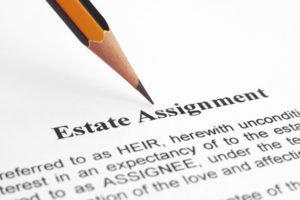
The only thing worse than having no estate plan, is an estate plan created from a ‘fill-in-the-blank’ form, according to the recent article “Don’t settle for a generic estate plan” from The News-Enterprise. Compare having an estate plan created to buying a home. Before you start packing, you think about the kind of house you want and how much you can spend. You also talk with real estate agents and mortgage brokers to get ready.
Even when you find a house you love, you don’t write a check right away. You hire an engineer to inspect the property. You might even bring in contractors for repair estimates. At some point, you contact an insurance agent to learn how much it will cost to protect the house. You rely on professionals because buying a home is an expensive proposition and you want to be sure it will suit your needs and be a sound investment.
The same process goes for your estate plan. You need the advice of a skilled professional–the estate planning lawyer. Sometimes you want input from trusted family members or friends. There other times when you need the estate planning lawyer to help you get past the emotions that can tangle up an estate plan and anticipate any family dynamics that could become a problem in the future.
An estate planning attorney will also help you to avoid problems you may not anticipate. If the family includes a special needs individual, leaving money to that person could result in their losing government benefits. Giving property to an adult child to try to avoid nursing home costs could backfire, making you ineligible for Medicaid coverage and cause your offspring to have an unexpected tax bill.
Your estate planning lawyer should work with your team of professional advisors, including your financial advisor, accountant and, if you own a business, your business advisor. Think of it this way—you wouldn’t ask your real estate agent to do a termite inspection or repair a faulty chimney. Your estate plan needs to be created and updated by a skilled professional: the estate planning lawyer.
Once your estate plan is completed, it’s not done yet. Make sure that the people who need to have original documents—like a power of attorney—have original documents or tell them where they can be found when needed. Keep in mind that many financial institutions will only accept their own power of attorney forms, so you may need to include those in your estate plan.
Medical documents, like advance directives and healthcare powers of attorney, should be given to the people you selected to make decisions on your behalf. Make a list of the documents in your estate plan and where they can be found.
Preparing an estate plan is not just signing a series of fill-in-the-blank forms. A customized estate plan is a means of protecting and passing down the estate that you have devoted a lifetime to creating, no matter its size.
Reference: The News-Enterprise (June 23, 2020) “Don’t settle for a generic estate plan”


